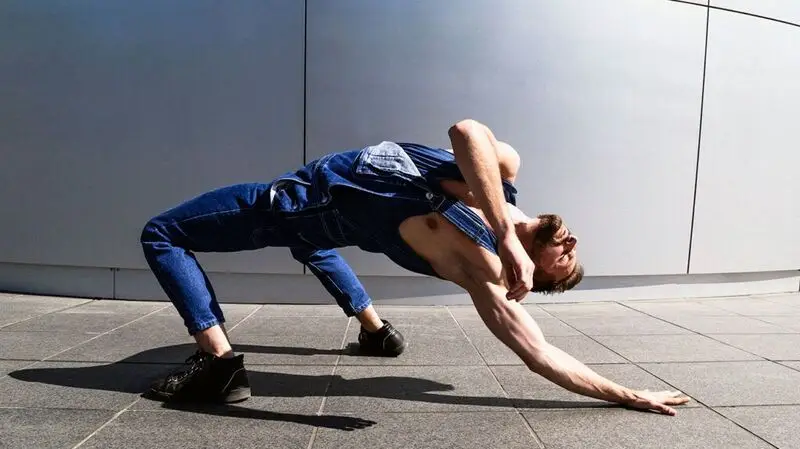
- A new study from researchers based in Brazil examined the importance of flexibility to longevity.
- The scientists analyzed records from thousands of participants to measure their levels of flexibility.
- Their findings showed that women generally had a higher Flexindex score than men.
- The researchers also learned that people with higher Flexindex scores had a lower risk for mortality.
Many
Claudio Gil S. Araújo, MD of CLINIMEX led the study, and his team assessed approximately 3,000 people to learn how flexibility impacts longevity. The team examined data collected from participants over 28 years, with a mean follow-up of 12.9 years.
The researchers found that people with higher flexibility ranges tended to live longer than those with lower flexibility ranges.
The findings appear in the
While
Flexibility
It is important to maintain good flexibility in different areas of the body to avoid or reduce pain in areas such as the neck and lower back. When flexibility decreases, this can cause areas of the body not to work properly.
For example, if someone experiences lower flexibility in their hamstrings, this can lead to tight hamstrings. When this happens, it can cause pain in the thighs that can work its way up to the lower back and reduce mobility.
People can avoid losing flexibility with a daily stretching routine that targets specific areas of the body or by participating in yoga.
The study utilized data collected from the CLINIMEX Exercise open cohort in Brazil. The researchers analyzed data from 3,139 middle-aged people (66% of the group were men) aged 46-65 years when they underwent their first exam.
At the participants’ first exams, the clinicians collected data on their BMI, vitals, and any health issues.
The clinicians also administered a flexibility test called the “Flexitest” that checked how flexible the participants were in 20 body joint movements:
- ankle (two)
- shoulder (five)
- knee (two)
- trunk (three)
- wrist (two)
- hip (four)
- elbow (two)
They assigned a “Flexindex” score from 0 to 80 based on the flexibility of the participants. Each body movement could get a score from 0 to 4 on the 20 areas measured, and lower scores indicated lower flexibility.
The clinicians assessed flexibility in several ways, including checking to see how far the participants could extend their elbows, checking their trunk flexion, and assessing how well their shoulders rotated.
The study lasted from March 1994 to February 2023, and the participants’ average follow-up period was approximately 13 years.
After analyzing the data, the researchers found that people with better flexibility levels had better survival rates for deaths related to natural or non-COVID causes.
When comparing Flexindex scores between men and women, they found that women had generally higher scores compared to men. Women had a 35% higher Flexindex score on average.
Overall, the scientists saw a connection between higher Flexindex scores and improved mortality rates in both men and women.
When comparing the women with lower Flexindex scores to those with higher scores, the researchers saw that women with lower flexibility scores had a 4.78 times higher chance of dying.
The men with lower Flexindex scores had a 1.87 times higher chance of dying compared to those with higher scores.
The study emphasizes the importance of physical fitness, especially in terms of focusing on flexibility and long-term health. It establishes that people—particularly middle-aged people—need to incorporate a daily routine that targets stretching and shows that doctors may need to focus on flexibility at annual physicals.
“An assessment of body flexibility using the Flexitest may serve as a useful complement to routine evaluation protocols for providing exercise recommendations and prescriptions to healthy and unhealthy middle-aged individuals,” write the authors.
Ryan Glatt, CPT, NBC-HWC, senior brain health coach, and director of the FitBrain Program at Pacific Neuroscience Institute in Santa Monica, California, who was not involved in the study, spoke with Medical News Today about the study findings.
“The study suggests a connection between flexibility and longevity, with women showing a 35% higher Flexindex than men, and an inverse relationship between Flexindex and mortality risk,” explained Glatt.
Glatt acknowledged that flexibility may be a reflection of overall Health, but noted that more research is needed.
“Although the Flexindex is a promising tool, it’s not yet proven enough to be a standard part of health assessments, and more rigorous studies are needed to confirm its significance,” noted Glatt.
Glatt also said gender differences could have affected the study results – the majority of the study participants were men.
“Incorporating flexibility exercises into routines, especially for older adults, seems reasonable since flexibility decreases with age, but the true impact on survival is still uncertain,” he added.
Chris McDermott, MSN, APRN-IP, a Certified Life Care Planner for Intercoastal Consulting & Life Care Planning in Jacksonville, Florida, who also was not involved in the study, noted that the study “suggests that staying flexible is important for health and longevity.”
“Improving flexibility can make everyday activities easier and help prevent injuries. It also plays a role in maintaining joint health and reducing stiffness,” McDermott told MNT.
McDermott suggested that people who are trying to improve their flexibility add some of the following stretches to their daily routines:
- hip hug stretches
- half-kneeling hip flexor stretch
- calf stretch at a wall





